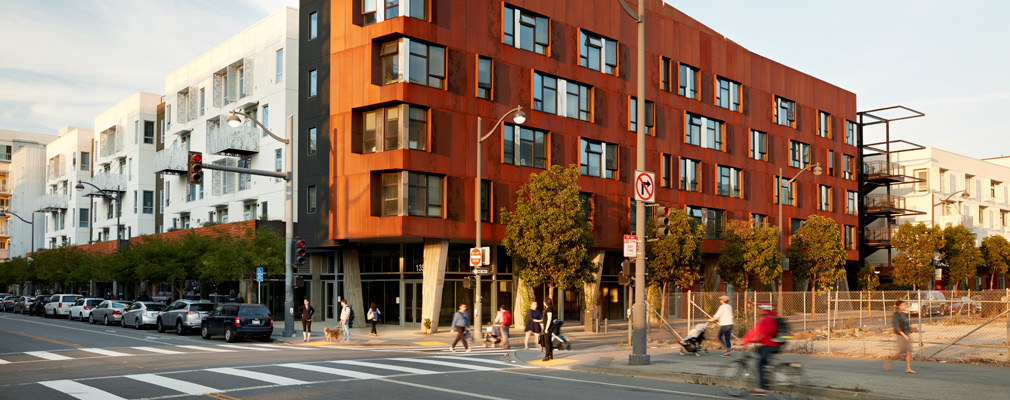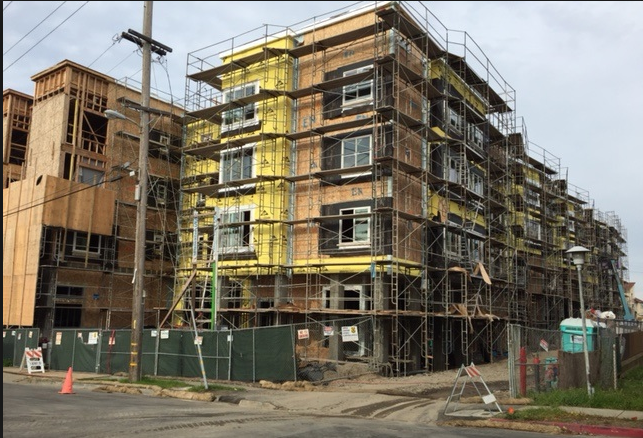
San Francisco: proposed Affordable Housing. (Photo: HUD.gov)
The Expanding Housing Crisis: Affordable, Attainable, or Impossible?
Attainable housing first, unlike government-supported ‘affordable’ housing, is owned, not rented
By Thomas Buckley, March 2, 2022 6:53 am
It has been said that everything starts in California.
Politics, storms, vast amounts of (currently) sequestered, (always) predatory wealth, that “up at the end” accent no one can actually tolerate, etc. – all that is true.
Add to that list of housing cost spikes.
Press play to hear a narrated version of this story, presented by AudioHopper.
There has been a significant debate around the idea of “affordable” housing. To simplify, that means – when the government is involved – a certain percentage of your known income will go to cover the roof over your head. If you happen to live in the Golden State, that will mean somewhere between 10 and 30 percent of your gross income will go to housing (and it can be less than zero, depending upon the definition of permanent supportive housing).
But instead of focusing on the idea of “affordable” housing, it may be time to look at “attainable” housing.
Attainable housing first, unlike government-supported “affordable” housing, is owned, not rented. Using averages, a standard urban California housing unit costs about $3,000 per month, utilities extra. This is a rent that can be sustained by an income of about $90,000 per year, already a bit above the state family average.
Now imagine making that rent payment each month and saving up for a down-payment – a California home costs about $700,000, which means an initial outlay of between $70,000 and $150,000, depending upon veteran and/or other status. This translates, if one is saving for that, into an actual housing cost of $5,000 per month until the home is purchased. That means the average family would have to earn more than $150,000 per to both pay rent and save up for an, at best, typical home. And as prices rise, that figure gets higher every day.
What that means is that only about 15 percent of Californians can currently reasonably expect to be able to even think about buying a home, once the bedrock of American society, let alone in California.
Which brings us to the question – Qui bono?
Surprisingly, it’s not necessarily the “evil” local developers, many of whom see a massive market opportunity and are trying to fill it – by building new units -as fast they can. The very specific beneficiaries are the massive hedge funds currently buying up neighborhood homes – one at a time.
Vast numbers of standard homes have been bought and converted into rentals – for them it makes sense, as the current return investment on rentals is near and/or above the S&P average and the ability to convert real property into general (borrow-against-able, if that scans) collateral is far more than that.
Add that into California’s recent move to wrest control of local land use ordinances and one has a perfect investor tsunami – if you can buy one home, spend a few bucks, and rent it to four families, why wouldn’t you? And why wouldn’t you do it again…and again…and again.
What all that implies is that California is creating neither affordable nor attainable housing – no matter the type of housing unit is being considered. With a state of renters, and everyone has rented at some point, so no harm, no foul; no matter how many months ahead, no matter the income, a certain edginess in one’s life occurs. If one is able to create that situation amongst a widespread majority that is a consistently nervous majority, one can essentially destroy the middle class, And, yes, lawn mowing and the tidy garage and the “well, don’t bug the neighbors” mindset is ripe for, occasionally deserved, mockery, to does mark – and personify – the inherent stability and success of the state and nation.
No matter the image, California was built on a simple reality – good regular people doing good regular living pretty darn well.
While the state that was once the global magnet for the brilliant and the silly and the rich and the optimist may still exist, the core that allowed the brilliant and silly and rich and the optimist to prosper may no longer be here.
- ADA Diana Teran Booked, Los Angeles DA Gascon Faces Another Complaint - April 28, 2024
- Curiouser and Curiouser: Gascon’s Aide Charges Raise Troubling Issues - April 27, 2024
- Reedley ‘Lab’ Prompts Legislation - April 26, 2024





Thank you for this piece. I wish more people were talking about this issue of corporations and investors buying up single family homes. They reduce supply, drive up prices, and box out families with their all cash, no contingency offers.
I’m also curious if and how foreign buyers affect the California housing market.